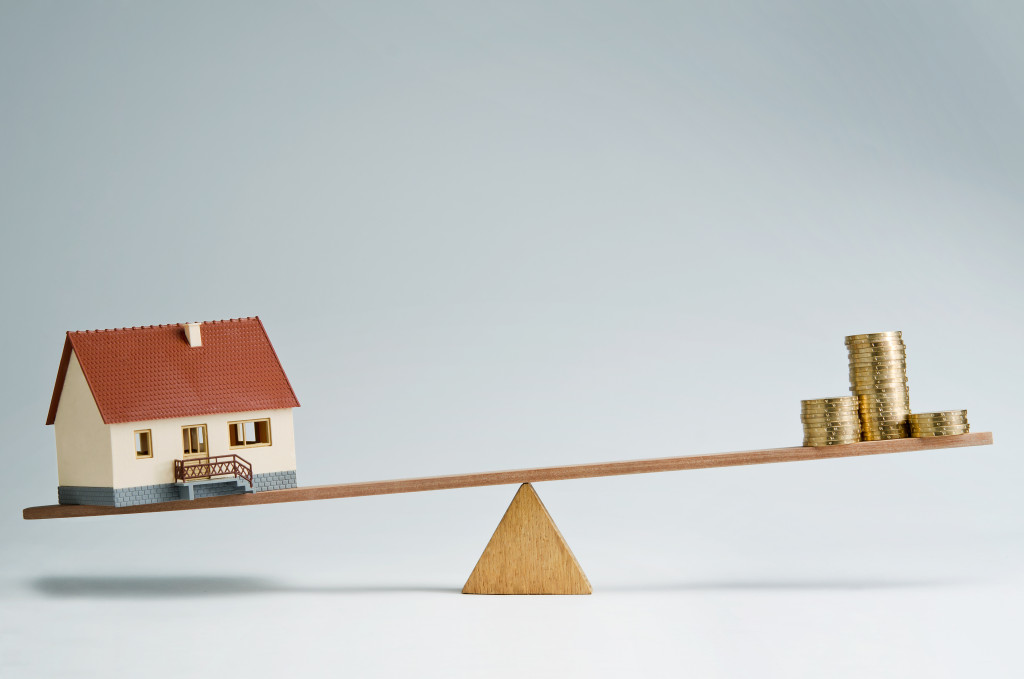Mortgage rates have continued to rise since November 2021 and recently reached a 16-year high in October of 2022. The average rate for a 30-year fixed mortgage is now 6.92%, up from when they were at their lowest, 2.98%, in November 2021. Comparing this data, it’s evident that there has been a significant increase over the past year or so.
The cause of the severe spike in mortgage rates is due to the Federal Reserve’s hostile position against inflation. In June, the Fed started buying $80 billion worth of Treasury bonds and $40 billion monthly in mortgage-backed securities. This quantitative easing program was created to keep interest rates low and persuade people into borrowing and spending more money.
Mortgage rates have actually increased as the Fed has attempted to lower bond prices, which push up yields and mortgage rates. The Fed is now in a lose-lose position; if it continues with its quantitative easing program, Americans will find it more difficult to purchase homes, but if they stop the program, the economy may tank.
Higher Mortgage Rates and Their Impact on the Housing Market
Rising mortgage rates could have far-reaching consequences, making homes less affordable and thereby slowing sales. If people are selling their homes more slowly than usual or not at all, the inventory of available homes will keep getting smaller—and that’s on top of how short it already is.
For those homeowners who took out loans with low-interest rates during the pandemic, refinancing will become more expensive as mortgage rates begin to rise. In November of 2021, mortgage rates were at an all-time low due to the Federal Reserve’s efforts against deflation. The average 30-year fixed rate was 2.98%, making it easier for Americans to buy a home—which caused a boom in housing market sales at the start of the pandemic from both desperate sellers and buyers taking advantage of work-from-home arrangements.
The current interest rate is the highest it has been in 16 years, and Goldman Sachs predicts that this could lead to more foreclosures as people have difficulty making their monthly payments. This forecast falls in line with their earlier prediction of a housing market downturn in 2023.
The current low-interest rates are a direct result of the Federal Reserve’s quantitative easing program, which was meant to keep borrowing costs down and incentivize spending. However, this had an adverse effect on mortgage interest rates as bond prices decreased and yields rose. The Fed is now in uncharted territory; if it continues its quantitative easing program, there is a possibility of further increasing mortgage rates and making homeownership more difficult for Americans. On the other hand, if it halts its progress altogether, stalling the economic recovery entirely becomes a very real threat.
People with adjustable-rate mortgages or home equity lines of credit will have to pay more each month as interest rates go up.

What This Means for You
When the Federal Reserve buys bonds, it raises interest rates and thus makes mortgages more expensive for consumers. If you plan to take out a fixed-rate mortgage, this means that you will have to pay more on your mortgage.
Though most mortgages aren’t adjustable-rate and are thus uninfluenced by rate hikes, about 11% of borrowers have an adjustable-rate mortgage (ARM). With these loans, your interest rate can change based on benchmark rates; however, they usually come with a lower starting rate. For someone who got their loan 10 years ago and has made minimum payments since then, this current situation would be the worst possible outcome. On the other hand, high interest rates also pushed more people towards choosing an adjustable-rate mortgage over a fixed one when taking out new loans
If you take out a mortgage with a fixed interest rate, you’ll have to pay more now. However, if you get an adjustable-rate mortgage, the interest rate could be lower in the future — but it might also be higher. It’s impossible to know for sure what will happen. The best thing you can do is to consult specialists like mortgage brokers and lenders to know if you will be making a good decision. Take note that some property owners may still hold on to their properties, but if you really want to buy a property, look for desperate sellers.
Final Thoughts
With mortgage rates on the rise, you can expect to see some changes in the housing market and economy at large. Homebuyers will have a harder time purchasing homes they want, while those with adjustable-rate mortgages or home equity lines of credit will have increased monthly payments. How everything plays out is still unknown, but things are about to get interesting.
